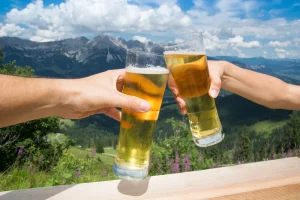
Alcohol also affects people with central sleep apnea (CSA), which occurs when the brain periodically stops sending certain signals involved in breathing. Alcohol interferes with the brain’s ability to receive chemical messages involved in https://ecosoberhouse.com/ breathing, which decreases the body’s respiratory drive and increases the likelihood of pauses in breathing. The typical sleep cycle begins with three non-rapid eye movement (NREM) stages of sleep and ends with rapid eye movement (REM).
- Peters is a board-certified neurologist and sleep medicine specialist and is a fellow of the American Academy of Sleep Medicine.
- Well, a viral trend, called the Military Sleep Method, claims to have the answer.
- If you experience consistent snoring and any one of the symptoms listed above, it may be time to talk to someone about your sleep issues.
- Dryuary is right around the corner, and there are countless free or low-cost programs on-line to offer support and guidance to anyone wanting to take an alcohol time-out.
- “The reminders to stop drinking caffeine and eating earlier are great and are earlier than I would have ever consciously thought them to be.
How Does Alcohol Affect Sleep?
- The homeostatic drive is responsible for keeping our body balanced, and it’s one of the major mechanisms that regulates the sleep-wake cycle.
- If you think you may have a sleep problem or disorder, consider taking our brief sleep quiz to find out.
- Poor or insufficient REM sleep has been linked to not only grogginess the next day, but also a higher risk of disease and early death.
Alcohol initially acts as a sedative, increasing the proportion of deep sleep at the beginning of the night. However, as the alcohol’s effects start to wear off, the body spends more time in light sleep, which is not as sound and may lead to more nighttime awakenings. As a result of these frequent awakenings, people tend to clock fewer hours sleeping after drinking alcohol. Before we look at the effects of alcohol on sleep in detail, here’s the basic bottom line.
What alcohol actually does to your sleep cycles

(3) Polysomnography results showed that alcohol significantly decreases the time spent in REM sleep and increases slow-wave sleep (SWS) during the first third of the night. We’ll add here that the research doesn’t show that alcohol affects the total amount of slow-wave sleep. It can make you sleepy and decrease sleep onset latency, which is the time it takes to fall asleep. But the sleep you get will be manufactured sleep, not the natural restorative sleep you need to feel your best. Alcohol can make you feel drowsy, but that doesn’t mean you should reach for a glass of wine before bed. Depending on how much you drink and how close to bedtime you drink it, alcohol can mess with your sleep in a number of ways.
Sleep Stages
Perhaps surprisingly, it found that alcohol affected the sleep of younger people more than it did older adults. Jessica is a reviewer, writer, and sleep enthusiast at Sleepiverse. Jessica graduated with her master’s degree in Nursing research and education. She is a registered nurse and currently works in the Intensive Care Unit.
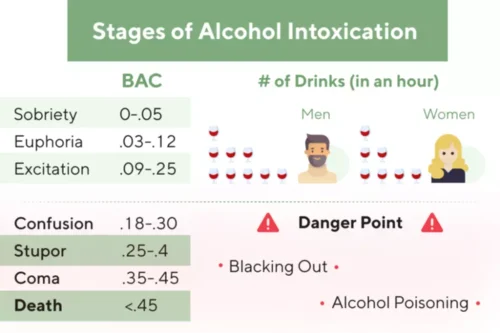
Some Beverages Cause Bloating Through a Buildup of Gas
If you think you might have OSA, the first port of call should be your GP, but it also helps to have some information about the condition and what treatment options exist. Estimates of the number of people with OSA vary depending on what is measured, but according to Dr Vakulin it affects at least 20 per cent of the adult population, with most people unaware they have it. And as a single woman at the time, this lack of social connection had serious impacts. In fact, Suzanne was so tired when it came to the weekends she had to spend most of the time in bed.
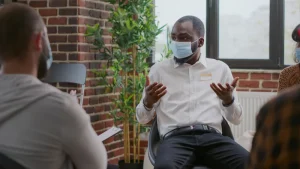
Many of us take for granted that drinking eases anxiety and helps us relax in social settings or at the end of a hard day. Especially in 2020, alcohol sometimes feels like a necessary vehicle for coping with an uncertain, and often scary world. For the study, researchers collected in-lab polysomnography results of thirty adult participants who drank either a mixer only or a mixer with alcohol. Researchers and participants targeted a breath alcohol concentration (BrAC) of 0.08 mg/L, and drinking ended one hour before lights out. Research shows the sleep-promoting effects of alcohol can start to wear off in as little as three days. Drinking more alcohol can lead to more tolerance and sleep problems, as well as alcohol dependency and health issues.
But it can actually end up robbing you of a good night’s rest — or worse, could cause some challenging sleep problems. If you’re having trouble falling or staying asleep often, see your healthcare provider. They can rule out any underlying cause for your insomnia and recommend the best treatment for you.
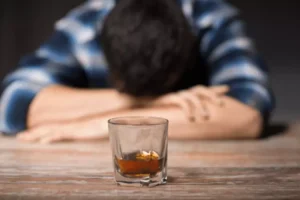
Addressing Underlying Sleep Issues
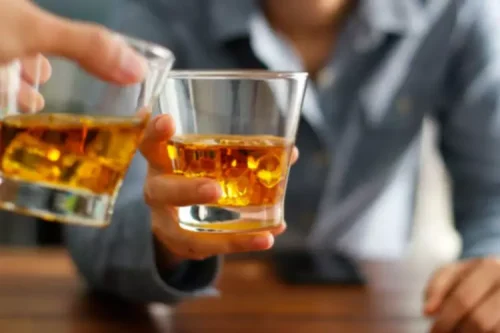
While a small amount of alcohol may initially induce drowsiness, it can disrupt the later stages of sleep and lead to poor sleep quality overall. It’s generally recommended to avoid alcohol close to bedtime for better sleep. For a good night’s sleep, non-alcoholic drinks are your best bet. Research shows drinking one non-alcoholic beer with dinner can improve subjective sleep quality and decrease how long it does alcohol help you sleep takes to fall asleep. The impact of alcohol on sleep can vary depending on several factors, including the amount consumed, the timing of consumption, and individual differences in metabolism and tolerance levels. While a moderate amount of alcohol may initially help you fall asleep faster, it can also lead to fragmented sleep, frequent awakenings, and decreased time spent in the restorative stages of sleep.
